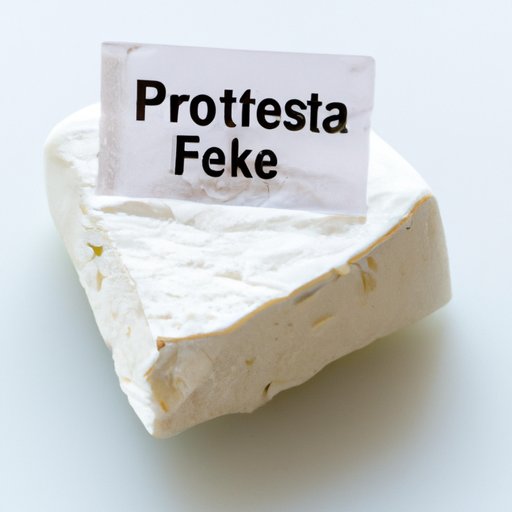
Introduction
Whether we like it or not, lactose intolerance is a common issue around the world. Many people struggle to enjoy some of their favorite dairy products without experiencing unpleasant symptoms such as bloating, diarrhea, and gas. However, this doesn’t have to be the case when it comes to feta cheese, one of the most popular types of cheese consumed globally.
What is Feta Cheese?
Feta cheese is a salty, white, crumbly cheese made from sheep or goat’s milk. It originates from Greece and is often used in Greek cuisine. Feta has a tangy flavor and is an excellent source of protein, calcium, and vitamin B12. As is the case with other types of cheese, feta is made by mixing milk with bacteria and rennet, allowing it to curdle and separate into solid curd and liquid whey.
Is Feta Cheese Lactose-Free?
There is a common myth that feta cheese is lactose-free. However, this is not entirely accurate. Feta cheese contains some amount of lactose, but the levels are considerably lower compared to other types of cheese. This is because feta cheese is made from sheep or goat’s milk, which contains less lactose compared to cow’s milk.
The Ultimate Guide to Finding Lactose-Free Cheese
If you’re lactose intolerant, there are plenty of lactose-free cheese options available. Lactose-free cheese is produced by removing lactose from milk or using bacteria in cheese production to break down lactose. Some popular lactose-free cheese options include cheddar, gouda, brie, and Swiss. When shopping for lactose-free cheese, be sure to check the ingredients label for any milk products that may contain lactose.
Feta Cheese Alternatives for Lactose-Intolerant People
Fortunately, you don’t have to give up on feta cheese entirely if you’re lactose intolerant. Several options are available for those who want to continue enjoying the tangy goodness of feta cheese. Some potential substitutes include lactose-free feta cheese, goat cheese, queso blanco, and feta-style tofu.
The Best Lactose-Free Recipes with Feta Cheese
There are plenty of delicious lactose-free recipes that incorporate feta cheese as an ingredient. Some popular options include Greek salads, baked feta cheese, and feta cheese omelets. For those who prefer vegan options, recipes that use feta-style tofu are available.
The Dos and Don’ts of Eating Feta Cheese for Lactose-Intolerant People
If you’re lactose intolerant and want to eat feta cheese, it is essential to consume it in moderation. Consuming large quantities of feta cheese may still result in lactose intolerance symptoms. If you experience bloating, gas, or diarrhea after consuming feta cheese, you should consider reducing your consumption or looking for alternative options. It is also a good idea to consult a medical professional if you experience any severe symptoms.
Conclusion
In conclusion, feta cheese is not entirely lactose-free, but it has considerably lower lactose levels compared to other types of cheese. For those who are lactose intolerant, several feta cheese alternatives and lactose-free cheese options are available. If you do choose to eat feta cheese, we recommend consuming it in moderation and paying attention to any adverse symptoms. By following this guide, you can continue to enjoy feta cheese without worrying about lactose intolerance symptoms.




